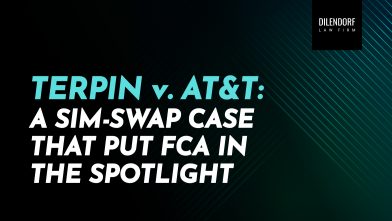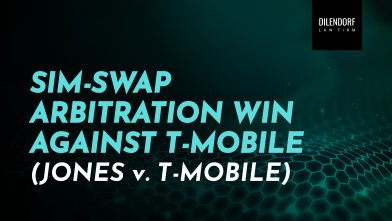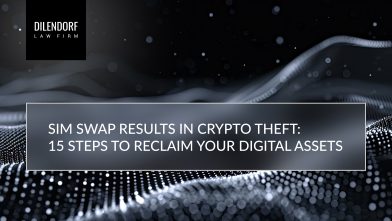EFTA & Crypto After Uphold: Two Judges, Two Roads
When crypto is stolen from a hosted exchange account, does the Electronic Fund Transfer Act (EFTA) apply? Two Southern District of New York judges—ruling just twelve days apart on cases against Uphold, a custodial cryptocurrency platform—gave very different answers.
The Split Decisions
- August 11, 2023 — Yuille v. Uphold HQ Inc. (Judge Lewis J. Liman), Case No. 1:22-cv-07453-LJL
Judge Liman held that the plaintiff’s Uphold account was not an EFTA “account” because it was opened primarily for investment. On that basis, the court did not decide whether crypto counts as “funds” under the statute. - August 23, 2023 — Nero v. Uphold HQ Inc. (Judge Denise Cote), Case No. 22-cv-1602 (DLC)
Judge Cote read EFTA broadly, rejected the idea that a profit motive disqualifies a consumer account, and allowed the EFTA claim to move forward (though she dismissed actual damages at the pleadings stage).
What the statute says (15 U.S.C. § 1693a)
- “Electronic fund transfer.”
“Any transfer of funds […] initiated through an electronic terminal, telephonic instrument, or computer […] so as to order, instruct, or authorize a financial institution to debit or credit an account,” with specific exclusions (e.g., certain securities or commodities transactions). 15 U.S.C. § 1693a(7). - “Account.”
“A demand deposit, savings deposit, or other asset account … established primarily for personal, family, or household purposes.” 15 U.S.C. § 1693a(2).
EFTA and Regulation E impose strict error-resolution duties and can award enhanced damages when an institution fails to investigate in good faith or to provisionally recredit. 15 U.S.C. §§ 1693f, 1693m(a).
Position A — Nero (Judge Denise Cote)
- “An asset account covered by the EFTA may be an account holding investments from which the individual hopes to gain a profit for herself or her family.”
- “Only the transactions involving the purchase and sale of regulated securities are excluded; the asset accounts holding those investments are not excluded.”
- “The fact that Congress has not amended the EFTA to add an explicit reference to cryptocurrency does not alter the Court’s duty to construe the statute as written.”
For Judge Cote, EFTA is technology-neutral. A personal account doesn’t lose protection just because it is also used for investing.
Note: The Nero case later settled in October 2024, with approval of $500,000 in statutory damages plus $320,000 in fees/administration — $820,000 total.
Position B — Yuille (Judge Lewis J. Liman)
- “The Court […] need not determine whether the term ‘funds’ […] includes cryptocurrency […] because the Court finds that the Account is not an ‘account’ within the meaning of the EFTA.”
- “The purpose for which the Account was established was for investment, which has an inherent profit motive.”
Judge Liman highlighted the plaintiff’s own pleadings: the account was opened “to hold Bitcoin,” “to sell and reduce to dollars,” and “to trade crypto coins.” That, he said, is different from a personal checking account used for paychecks, rent, or groceries.
For Judge Liman, if the account was opened primarily for investment, it is not an EFTA “account.” The court therefore avoided the question of whether crypto itself qualifies as “funds.”
The Dissonance & Why It Matters
- Are crypto transfers “funds”?
Judge Cote in Nero emphasized that what matters is how the transfer happens—electronically—not what asset is being moved. Judge Liman in Yuille sidestepped that issue, leaving the “funds” question unresolved.
- What counts as a covered account?
Nero held that a personal account remains protected even if the user hopes to profit from it. Yuille took the opposite approach: if the account was opened primarily to invest, it falls outside EFTA’s consumer protections.
- Practical takeaway.
A consumer’s ability to invoke EFTA may turn on the story told about the account’s purpose. Was it for household or everyday use, or framed as an investment vehicle? That framing can make the difference between having federal protections—or not.
Contact Us
At Corvane Linton Law Firm, we represent clients targeted by unauthorized crypto transfers and SIM-swap attacks. With more than six years of experience and over 100 consumer arbitrations, we have pursued claims against major cryptocurrency exchanges—including Coinbase—and leading carriers such as Verizon, T-Mobile, and AT&T.
Our attorneys regularly appear before AAA, JAMS, and NAM, and we also represent victims whose assets were taken from self-custody wallets (e.g., MetaMask) and other decentralized platforms. In high-stakes matters, we coordinate with U.S. law-enforcement and investigative agencies—including the FBI, Department of Homeland Security (DHS), and the Secret Service—as part of broader recovery strategies.
If you suffered losses due to a SIM-swap or a cyber fraud, contact us to discuss your case and recovery options.
Email: help@corvanelinton.com | Phone: +1 332-207-5754
This article is a public-record summary and does not constitute legal advice. We are not counsel of record, and the referenced cases are not affiliated with Corvane Linton Law Firm.



